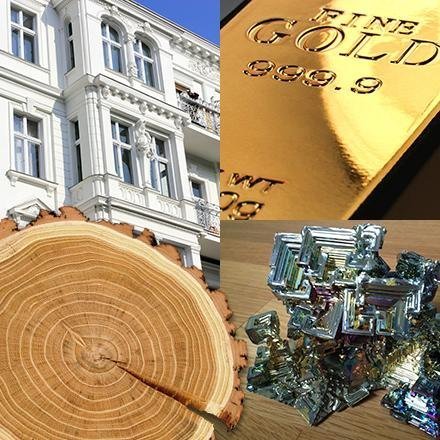Asset classes
- Classic bank investments (FIAT)
- Securities (e.g. shares, bonds, mortgage bonds, funds, ETFs, certificates)
- Real estate (Direct Investment, Crowd Investing)
- Alternative Investment (Proportionally real assets, private equity, commodities, precious metals, rare earths, hedge funds, managed futures/CTAs, etc.).
CRITERIA OF AN ASSET CLASS ACCORDING TO WILLIAM F. SHARPE
- The different asset classes must be mutually exclusive, meaning that a given investment product can only be assigned to one asset class at a time.
- An asset class must be comprehensive so that diversification, i.e. investing in different products, is possible within the asset class.
- The returns of individual asset classes may not be related, so that the return of one asset class may rise while the other falls.

